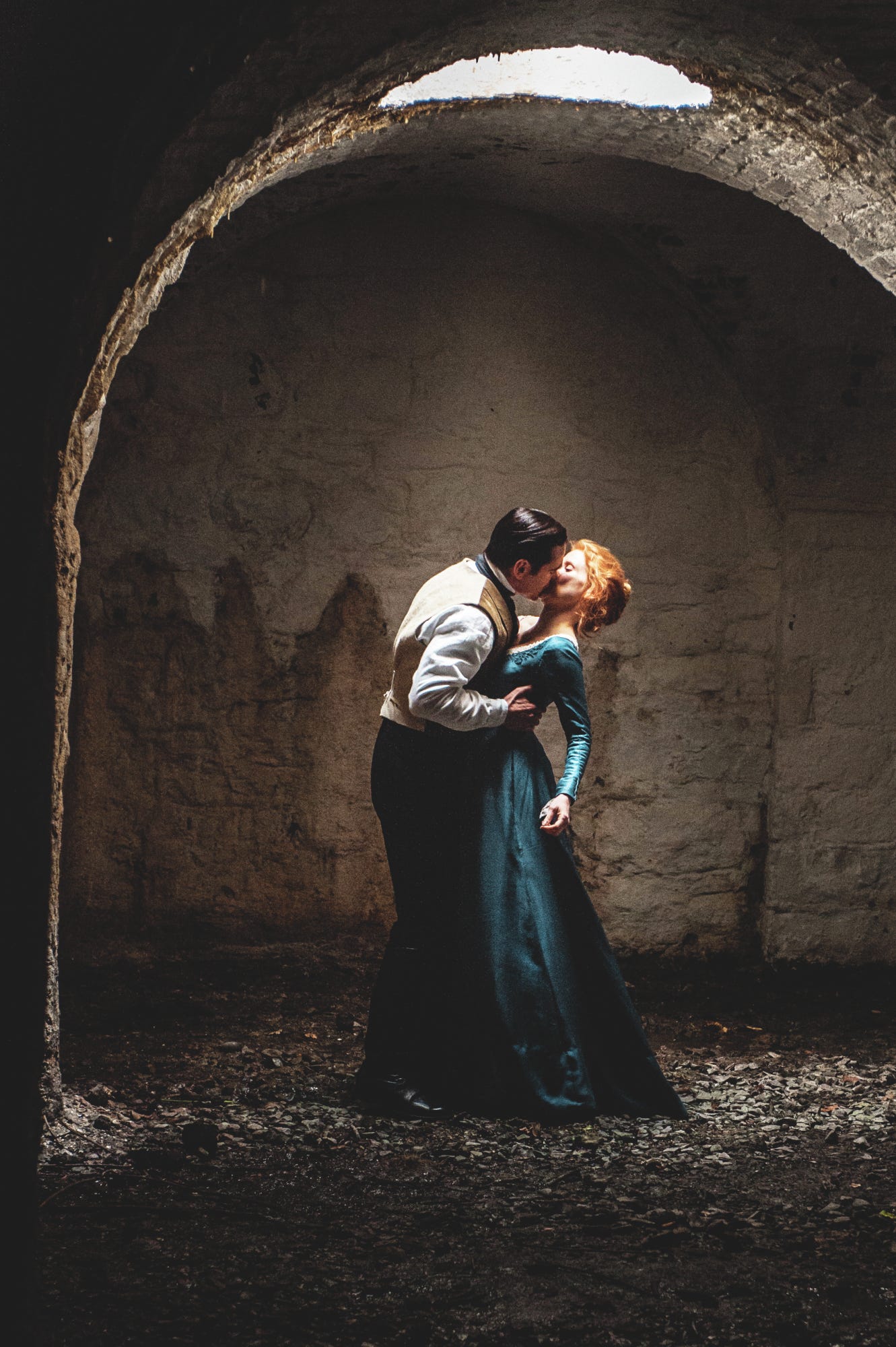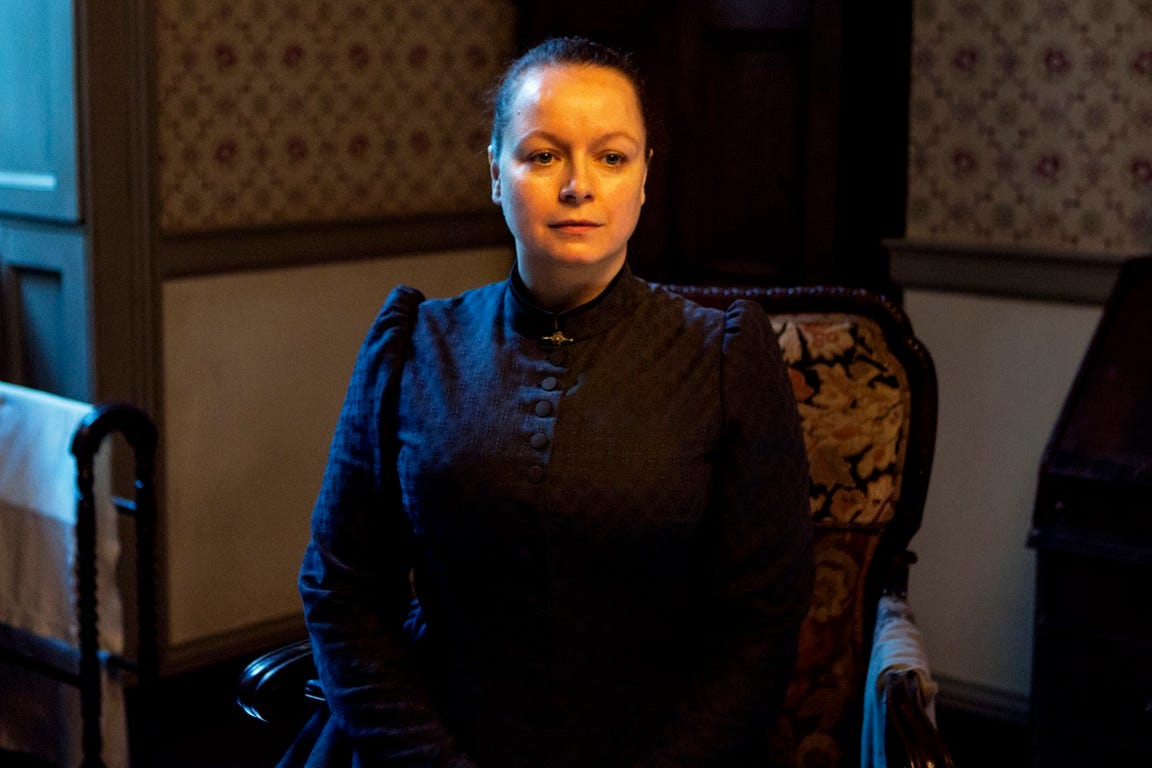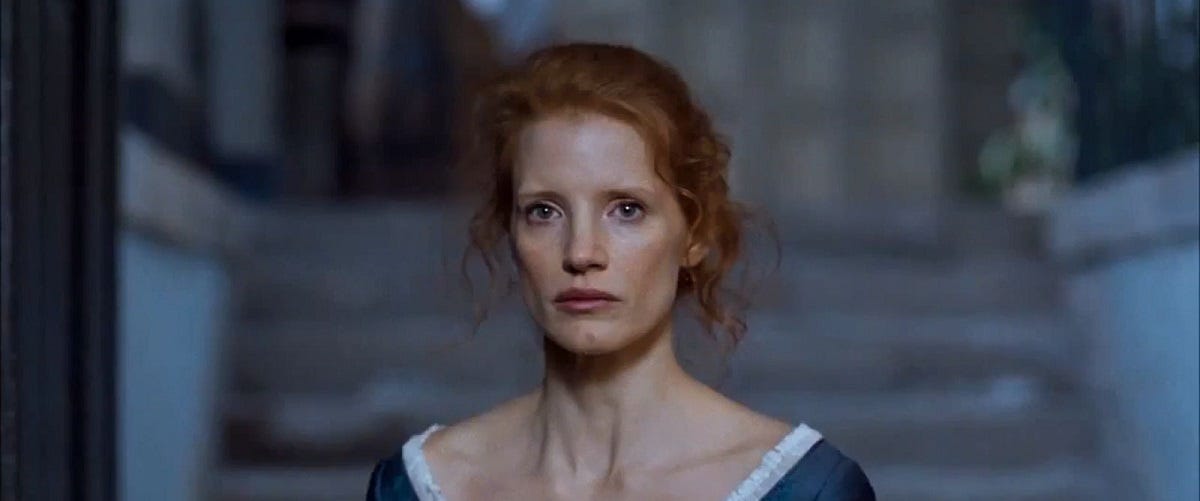
Thank you for reading during this very difficult day. I decided to go ahead and post today’s entry late. But first, I have to speak on this election, and perhaps process what has happened, if only for my own sanity. I am trying to grasp exactly what occurred here, not in Washington, but among the people I consider fellow citizens. It’s worth noting that these election results ultimately talk about the purpose I see in writing and keeping this Substack. In fact, the election is a clear-eyed testament to how Americans feel about criminal justice and incarceration.
We know Donald Trump’s platform. It was a message of distrust and disdain for immigrants, sometimes illegal ones, sometimes not. The larger theme was to distrust your neighbors. He constantly — constantly — denigrated people who would not vote for him, even if those were American citizens, sixty million, eighty million, whatever the number would be. He sparked the dark desire within all of us to look across the street and see the enemy. He manufactured crime statistics and anecdotes to make it seem as if the streets, the sidewalks, entire neighborhoods were not safe from violence. He wins by enabling our worst selves, and then flattering those selves.
He did this despite his status as a convicted felon. He did this despite countless criminal charges against him, to say nothing of the ugly allegations. He was a criminal, in the most factual sense. And the majority (!) of Americans made one of two calculations:
He wasn’t actually a criminal, it’s the criminal justice system that’s corrupt for trying to convict him.
He was a criminal, and I don’t care, it doesn’t bother me, I’m fine with criminals.
So let’s address the first one.
These are the people who ostensibly believe that our methods of prosecuting crimes in this country are unjust, which is a fair point. There are too many mandatory minimums, too many prosecutors operating without oversight, and little-to-no post-release remedies. We over-prosecute. Maybe ninety-something counts against Donald Trump was a little overzealous, and perhaps there was some double-counting in a few of those allegations. A reasonable discussion.
Addressing the second point.
We as a nation need to forgive those that transgress. When citizens do wrong, they need to have the opportunity to do good. Restorative justice honors these beliefs, the idea we can rehabilitate people on a one-to-one basis. To mark someone as a criminal is to ignore what is in their heart, nevermind ignore what they can provide us with their hands and feet, their talents and decision-making, their charisma and leadership skills. Let’s think differently of those who may be considered criminals, in other words.
To me, these rationalizations make complete sense. They also ignore a few inconvenient facts:
In 2024, there are two million people in America who are imprisoned for committing a crime. There are millions more, including myself, who are living a life where we have less rights. Our travel is limited, our rights are often minimal depending on the state. We cannot rent property in many municipalities, and we cannot, or will not, be hired for the majority of jobs, depending on background checks and/or the restrictions of that particular business. Many lose custody of their children.
If you are an ex-con, you may have no place to live, no means to make a living, and they may take your children away from you. I would like to hear from someone who cast a vote for Donald Trump if this is something that bothers them. I’m going on a hunch that it does not. Mind you, 38.9% of inmates in the federal prison system are Black, and Black inmates are jailed in state prisons at a rate five times that of white inmates. Hispanic and Latino inmates are also jailed disproportionately. And the recidivism rate for an ex-con, within one year of their imprisonment, is 25%.
Trump voters pointed to those people who are incarcerated, and then they pointed to Donald Trump. And they said, Yes, Them, But Not He. This was about the societal trend of a wealthy white man consistently deserving the benefit of the doubt. Minorities (particularly Black women, a demographic millions of white men may never trust) need not apply.
Which brings us to the real purpose of mass incarceration. It’s a logistical jump to make that assertion until you consider Donald Trump was a borderline one-issue candidate in his constant demonization of immigrants. They were invaders, marauders. Killers, even. Whatever you wanted to call them, they were criminals. The criminal stood at his podium, when he wasn’t miming oral sex with the microphone (no I’m not linking to that foolishness), and told us who the real criminals were. The real criminals weren’t adjudicated rapist Donald Trump, currently out on bail for another case completely unrelated to the rape of E. Jean Carroll. And they weren’t Elon Musk, who entered the country illegally, and who literally bought votes for Donald Trump. They were the Mexicans coming into the country, and why not, the Haitians too. And maybe the Puerto Ricans (like me) who apparently came from a floating barge of garbage sitting in the ocean somewhere to claim American citizenship.
Criminal justice is, and has always been, about race. The criminals, the “bad guys”, are of races different than the white man. And the white man, well, he wouldn’t do such a thing as commit a crime, right? He is innocent, he will always be innocent.
I had a revealing conversation recently with someone regarding Donald Trump’s rape of E. Jean Carroll, which was proven in a civil case and verbally endorsed, quite loudly, by the presiding judge. Despite the evidence and ruling of the civil court, despite the words of the judge (and despite, obviously, Ms. Carroll’s firsthand accounts), the insistence was that, because there was no criminal conviction, one could not say he was a rapist. Which was this election in a nutshell. Despite the entire history of humanity offering proof, this particular white man (and his dozens of credible assault allegations) could only possibly be a rapist if he was placed in cuffs. You’re not a rapist unless the system comes for you. I don’t have to say this is a dramatic and wholly ignorant misunderstanding of rape culture, of our entire human history of sexual subjugation of marginalized people, but I’ll boost my word count anyway.
A low point, for everyone, was the Access Hollywood tape. In that tape, when he discusses sexually assaulting women, he says, “And when you’re a star, they let you do it. You can do anything.” In his eyes, and the eyes of his voters, he is not a criminal and never will be. He’s allowed to commit crime, but he’s not a criminal. This election, in the abstract, was about who should go to prison, and who should not. And the voters said, we believe millions of people should go to prison — but not the white man.
And now, back to our regularly scheduled program.
The Week Of Chastain continues with this relatively highbrow entry. This costume drama, based on an 1888 play (much like “Venom: Let There Be Carnage”, actually), is from the pen of legendary playwright August Strindberg, who showcased a prolific output across many media of the era. Chastain studied acting in Juilliard, and while I can’t find any confirmation of this, I’m sure she was an avid fan of his work. Can you imagine being in college and trying to flirt with her, and she’s like, “Sorry, I have to stay in and read Strindberg”? I have to be honest, kinda sexy.
Speaking of sexy, Colin Farrell! You ladies love this guy with the vaguely-ethnic unibrow and purring lips. I don’t get Colin Farrell as a sex symbol (I am a heterosexual male), but he’s quite a reliable actor, and I feel bad he’s had to model stoicism while studios insisted in putting him in uncommercial big budget movies that no one liked earlier in, and then all throughout, his career. But in this movie? If you’re one of those theater gals who gets the hot sweats from men in poofy wardrobe, Farrell would be a pinup in this.
I’m calling it now. Though this movie is PG-rated and features nothing too objectionable for the kiddies (because everywhere you go, young people can’t stop talking Strindberg), this is probably the hottest couple of any 2014 movie. In fact, I’ll call it right now. The hottest movie couples of 2014 were:
-Chastain and Farrell
-Rosamund Pike and Ben Affleck, “Gone Girl”
-Jason Momoa and Lisa Bonet, “Road To Paloma”
-Idris Elba and Kate del Castillo, “No Good Deed”
-Sullivan Stapleton and Eva Green, “300: Rise Of An Empire”
Yikes. Y’all weren’t really fooling around too much back then, were you?
Superficially, this is a romance about class structures. Chastain is the wealthy young lady of the manor, and it seems she’s puppeteering the other two characters in this residence. Farrell’s John is a servant, of the lower class, and the two are inexorably attracted to each other. But is it infatuation, or is he a toy to her? Complicating matters is his own affection for Kathleen (Samantha Morton), who cooks and cleans and keeps Miss Julie’s life in order. At first, John is simply commiserating with another person of his social strata. Eventually, it is as if he is using his handsomeness as leverage of sorts.
It is natural to see the hierarchy of attraction reflected in the actors’ appearances. I once thought Morton was the most beautiful woman in film, simply due to her honest, unflinching eyes. But she is seen as the oldest of the three of them, the most maternal, even though she is one year younger than Farrell in real life. She wears her age unashamedly, whereas Farrell has the ageless look of any movie hunk – he reflects a mature manhood, though he could easily be mid-thirties, still virile and more than a little foolish. Chastain is supposedly the youngest and most enticing, but her wealth as the lady of the house allows her to attract and repel John at a moment’s notice.
This is from the legendary Liv Ullman, the vaunted actress-turned-director known for her tumultuous collaborations with lover Ingmar Bergman. Perusing their films, you can see how Ullman developed her interest in power dynamics from her former lover. Despite her advanced age (she is 85 as of this writing), in this movie she refuses to be showy in a way that would obviously separate the material from a staged reading. But the manner in which her camera surveys the interiors of this house, often in long takes, emphasizes the physicality present. Miss Julie, with her ostentatious dresses flowing behind her. John with his louche body language, dominating the space around him like an insecure boy. And then poor Kathleen, systematically cleaning up after the two of them.
John is the older boytoy who has surrendered maturity to be under Miss Julie’s lovely, rich thumb. But soon, he manipulates her desires knowing that he has something she can not obtain with material gain. So begins a grudge match between two people not above willing to be hurtful to obtain something, or to take from another. All performers, quite obviously, are ready for this sort of meat, and all of them take turned becoming beguiled, and then betrayed, over and over. Chastain, playing something of a spoiled brat, finds endless variations on a theme where she is reminded of how young she’s meant to be, the wealthy seductress reduced to the lovelorn girl, brutally shorn of power.
I want to write briefly about the death penalty, which obviously was not something I encountered while I was down. There is a considerable percentage of society that believes the death penalty is humane and appropriate in certain circumstances, as a reasonable punishment for those that have committed the most egregious of crimes. Putting aside the morality issue, most people with this sort of wish don’t understand something – it can take decades for someone on death row to finally be executed. And in the meantime, the person you wish to die is eating and clothing himself with your taxpayer money. As far as wishing ill upon someone, that’s an unusual way to go about it – I will make sure you have a bed, toiletries and housing for the next couple of decades, while I advocate for your slowly-impending death. Even for the most spiteful, that is a fairly backwards interpretation of justice.
But there are other cases, on and off death row, of inmates who are found innocent, or who are convicted for serious crimes on a fraudulent basis. Yet many of them still find themselves looking at a grisly fate. Which is interesting to me – if you were in a position to punish someone based on what they’ve done, and you found out they were not responsible, you would immediately cease punishing them. Indeed, prisons are filled with exonerated people who somehow haven’t managed to obtain what should be a corresponding freedom. Some of these men are already likely to face a deadly penalty, one unwarranted. Why does the justice system have such a hold on these men and women, why can they not let them go?
The prison officials and politicians will tell you this is about the struggle of bureaucracy, that this is all about the difficulties and confusion that come from clearances and paperwork. Flimsy, if true, but of course it is not. When you hear any prison official speak about the system in which they participate, you’ll learn the most valuable criteria is CYA – Cover Your Ass. To admit you are wrong to keep an inmate prisoner is to admit a weakness in our law enforcement apparatus. The message that is sent, theoretically, is that the system is faulty and cannot be trusted. Yes, the truth is that mundane – an official will gladly kill a man (innocent or otherwise) in order to preserve what they believe is faith in a broken institution. Cowardice at the highest level, and it is happening each and every day.








Even here in California, we're on track to vote in new three-strike style draconian punishments for *petty theft*, fucking shoplifiting. And at the same time vote down an increase in minimum wage and easier regulations for getting affordable housing built. On the subject of punishment, I think this election was entirely about taking frustrations out on others - punish you for my sense that the economy isn't what it should be, so you don't get to make more money even though it would eventually trickle UP to me, you don't get better prices on housing that I would never need to live in, you get punished extra hard for not being able to afford things (the only reason petty theft happens, outside of kleptomania.) This was a pissy society pissing on absolutely everything, while ignoring what that would actually mean, and the larger threats to democratic freedoms that come along with it. People are very simple, and very petty.
On the subject of the movie review - I'd compeltely forgotten this movie exited! I've seen the play, but never the movie.